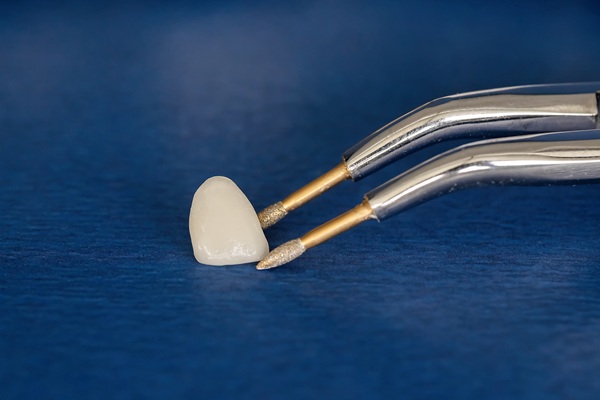Dental Crowns: Common Issues and How to Address Them

Dental crowns are widely used to restore damaged or weakened teeth, providing durability, strength, and a natural appearance. A dental crown can last many years with proper care, but it may face complications over time, like any dental restoration. Understanding these common issues and how to address them can help patients maintain their crown's health and function.
Common issues with dental crowns
Sensitivity and discomfort after placement
It is common for patients to experience mild tooth sensitivity shortly after receiving a dental crown. This can result from irritation to the nerve during crown preparation or from the crown sitting too high on the tooth. To resolve this issue, dentists may adjust the crown’s fit or recommend desensitizing toothpaste to alleviate symptoms. If sensitivity persists or worsens, further evaluation may be needed to ensure no underlying nerve damage.
Loose crown or loss of cement
Over time, the dental cement that holds a crown in place may weaken, causing the crown to feel loose or shift slightly. If left unaddressed, bacteria can enter the space beneath the crown, increasing the risk of decay. Re-cementing the crown is typically a simple fix that can restore its stability and protective seal. In cases where the crown structure or underlying tooth has deteriorated, a new restoration may be necessary.
Cracks or fractures in the crown
Although dental crowns consist of strong materials, they can still crack or chip due to excessive pressure from grinding, biting hard objects, or trauma. Minor surface chips in porcelain crowns may be polished or repaired with composite resin. For deeper fractures or cracks affecting the crown's integrity, replacement is often the most effective solution to prevent further complications.
Gum irritation or recession
Some patients may notice inflammation, redness, or gum recession around a dental crown. Poor crown margins or improper fit can contribute to these issues, as can inadequate oral hygiene. Improved brushing and flossing techniques combined with regular dental cleanings can reduce inflammation. If the crown is the cause of irritation, a replacement with improved contour and fit may be necessary.
Dark lines near the gum line
This aesthetic concern is most common with porcelain-fused-to-metal crowns, where the metal base becomes visible at the margin near the gums. While it does not usually affect function, many patients seek cosmetic improvement. Replacing the dental crown with an all-ceramic or zirconia crown can eliminate the dark line and provide a more seamless, natural appearance.
When to seek professional evaluation
Any change in the comfort, fit, or appearance of a dental crown should prompt a visit to the dentist. Immediate treatment can prevent further damage to the tooth or surrounding structures. The dentist can also help the patient maintain their long-term oral health.
Protecting your investment in your dental crown
With routine dental visits, proper hygiene, and timely intervention, dental crowns can remain a reliable and attractive part of a healthy smile for many years. Dentists work closely with patients to monitor crown health and make any necessary adjustments or replacements over time. For more information or to schedule a consultation, call Seville Dental Group at our Huntington Park office.
Request an appointment here: https://www.sevilledentalgroup.com or call Seville Dental Group at (323) 774-1177 for an appointment in our Huntington Park office.
Check out what others are saying about our dental services on Yelp: Dental Crowns and Dental Bridges in Huntington Park, CA.
Related Posts
Modern dentistry is improving with new technology that enhances patient comfort, convenience, and results. One of the most notable innovations is CEREC. A CEREC dentist provides same-day dental restorations with great precision and efficiency. Choosing this dental provider can change your treatment experience by making it quicker, more reliable, and more comfortable. Here are five…
Two popular choices for restoring damaged teeth are same-day crowns and traditional crowns. Both of these treatment options are effective for improving your oral health and the appearance of your smile. However, there are differences in the placement process. The following guide outlines the benefits and limitations of each type of dental crown to help…
There is no one-size-fits-all answer to whether a smile makeover or a single cosmetic dental treatment is better. A smile makeover includes multiple procedures to improve the overall shape, color, and alignment of a smile in a planned order. However, some individuals may only need one cosmetic dental treatment to achieve their smile goals. The…
Dental veneers enhance the smile with a blend of beauty, efficiency, and durability. These thin shells bond to the front of teeth to correct chips, stains, gaps, and minor misalignment with precision. But like any dental treatment, there are some trade-offs to consider. Weighing the pros and cons of veneers can help patients decide whether…
